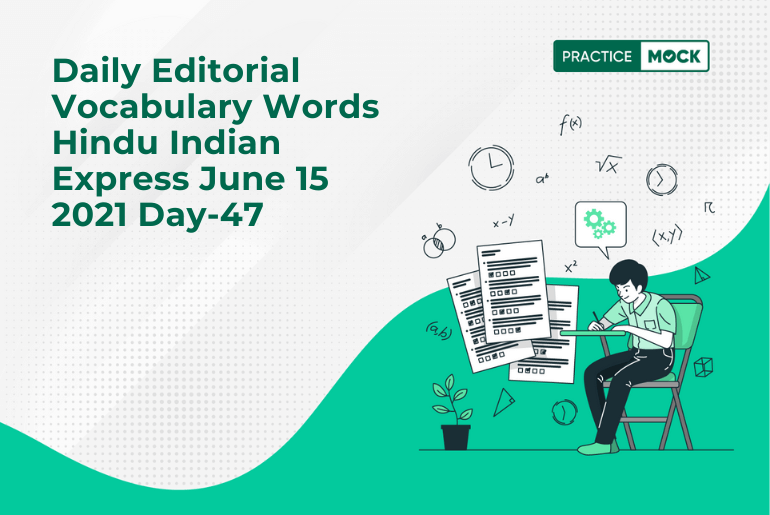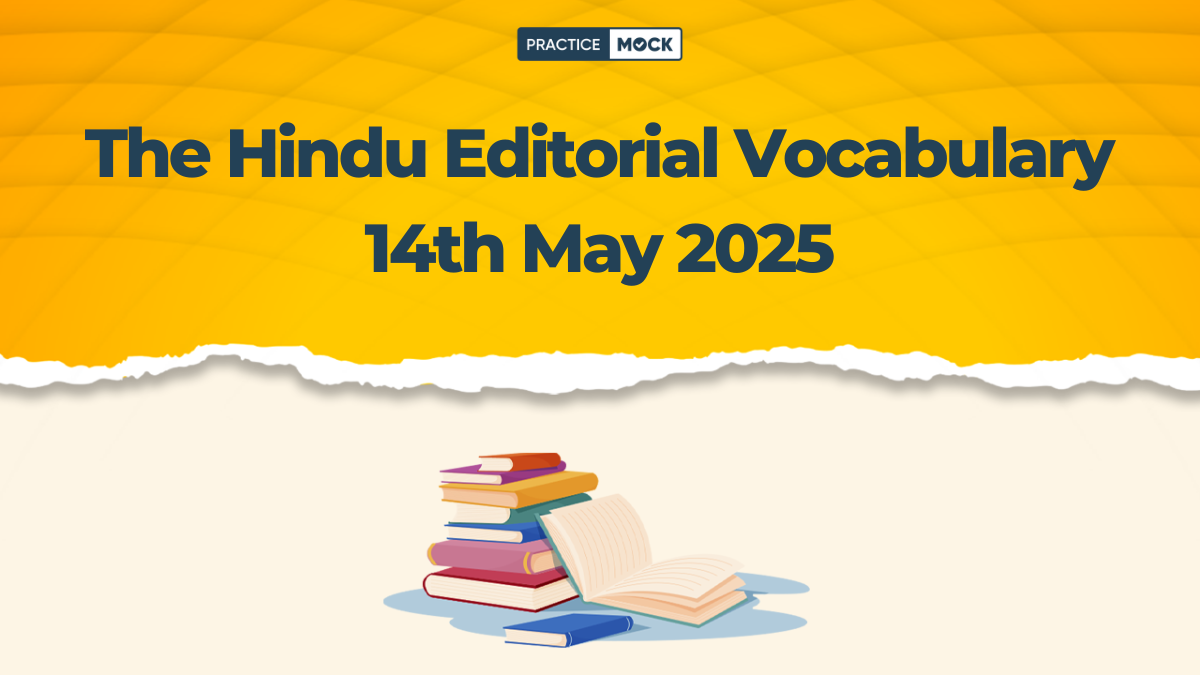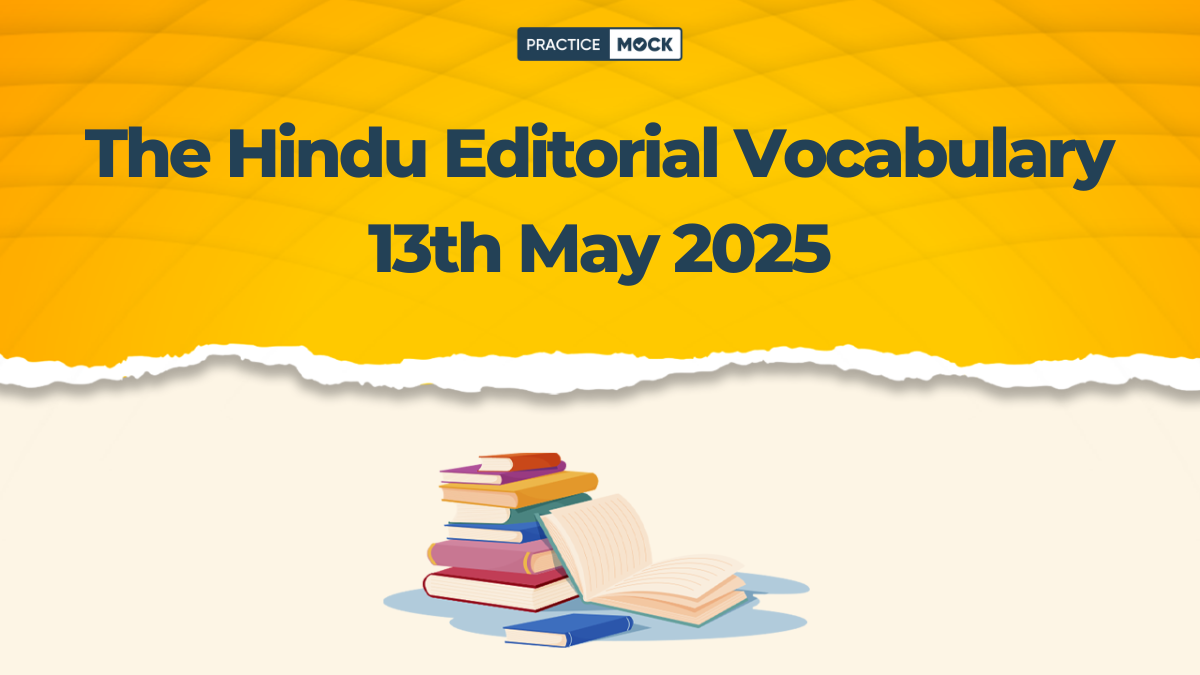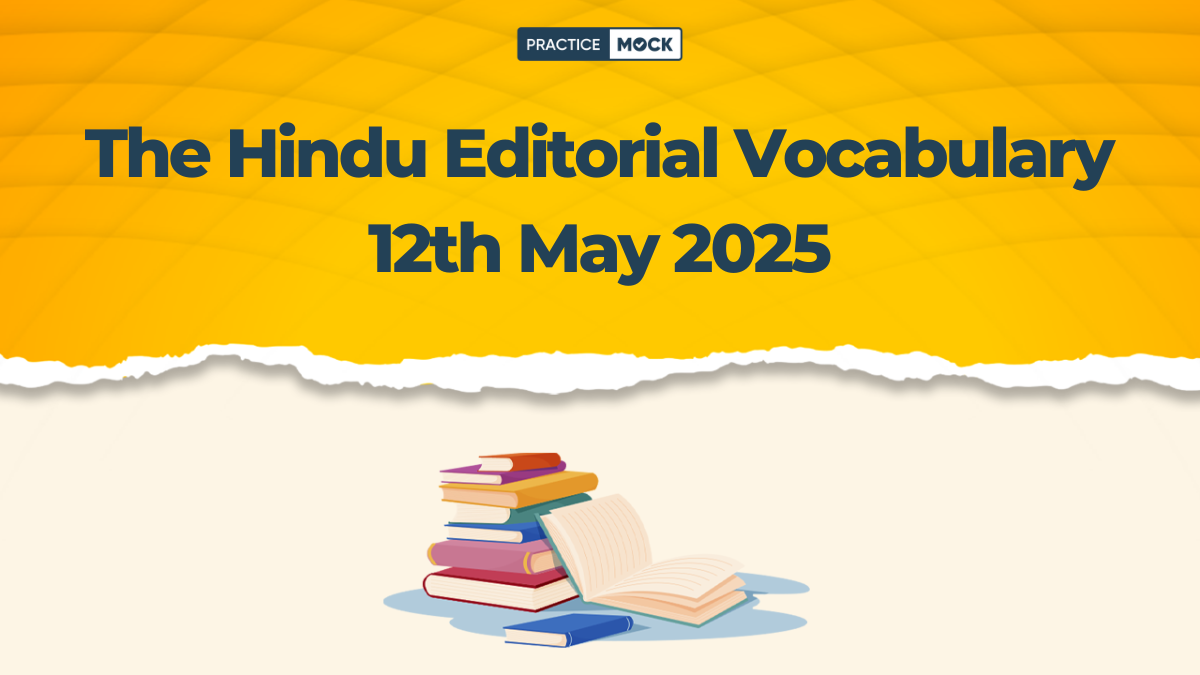Daily Editorial Vocabulary Words Hindu Indian Express June 15 2021 Day-47


In the realm of language acquisition and refinement, a robust vocabulary is akin to a painter’s palette – diverse and vibrant. To embark on this linguistic journey, enthusiasts often turn to editorial sections of reputable newspapers like The Hindu and The Indian Express. June 15, 2021, marks the 47th day of this lexical exploration, where words not only serve as tools for communication but also as windows into the nuances of expression. Let’s delve into the editorial vocabulary for this day and unravel the richness it brings to the tapestry of language.
- Ubiquitous (Adjective): The term ‘ubiquitous’ made its appearance on Day 47, emphasizing the pervasive nature of a certain phenomenon. Its usage in the context of an editorial might relate to the omnipresence of an issue or an idea. Understanding the ubiquity of certain concepts is crucial for a well-rounded comprehension of societal dynamics.
- Vexatious (Adjective): The adjective ‘vexatious’ adds a layer of emotion to the vocabulary. It refers to something causing irritation or annoyance. In the editorial landscape, this word might be employed to describe a persistent and troublesome issue that demands attention. A keen awareness of vexatious matters is essential for effective problem-solving.
- Belligerence (Noun): The inclusion of ‘belligerence’ in the day’s vocabulary brings forth a sense of aggression or hostility. This term often finds its place in discussions related to geopolitical events, international relations, or even domestic policies marked by confrontational attitudes. Recognizing belligerence in discourse is pivotal for gauging the tone and tenor of a given situation.
- Obfuscate (Verb): To ‘obfuscate’ is to deliberately make something unclear or difficult to understand. This term is frequently used in the realm of politics, where communication can sometimes be intentionally convoluted. Recognizing attempts to obfuscate information is a crucial skill in an era marked by information overload and strategic messaging.
- Lament (Verb/Noun): The word ‘lament’ introduces a tone of sorrow or regret. It can be employed both as a verb, meaning to express grief or regret, and as a noun, denoting an expression of sorrow. In editorials, ‘lament’ may be used to convey a sense of disappointment or anguish about a particular situation, policy, or societal trend.
- Esoteric (Adjective): The term ‘esoteric’ refers to knowledge that is understood by a small, specialized group and is not easily accessible to the general public. In the editorial realm, this word might be used to describe complex or specialized topics that require a certain level of expertise for comprehension. Recognizing esoteric language is vital for decoding intricate subjects.
- Dilapidated (Adjective): The adjective ‘dilapidated’ describes something in a state of disrepair or decay, often referring to buildings or infrastructure. In editorials, this term may be utilized metaphorically to depict the crumbling state of institutions, systems, or policies. Identifying the use of ‘dilapidated’ provides insight into the critical assessment of existing structures.
Conclusion:
In the perpetual quest for linguistic mastery, delving into daily editorial vocabulary offers a myriad of benefits. It not only enhances one’s word arsenal but also fosters a deeper understanding of the issues shaping our world. The words encountered on June 15, 2021, in The Hindu and The Indian Express – ubiquitous, vexatious, belligerence, obfuscate, lament, esoteric, and dilapidated – are not mere lexical entities; they are portals to comprehension, empathy, and critical thinking. Embrace these linguistic tools, and let them be your guides in navigating the intricate landscape of ideas and opinions.
Recent Posts
RRB NTPC Application Status 2025 Out, Check Your Application Status
The RRB has released the RRB NTPC Application Status 2025. In this blog, we have…
How to Prepare Quant for IBPS PO 2025 Prelims Exam, Check Strategy to Score 30+ Marks
Here we are providing the strategy to prepare the Quant section for the prelims exam.…
IBPS PO Eligibility Criteria 2025, Check Bank PO Age Limit and Educational Qualification
IBPS PO Eligibility Criteria highlights eligibility for the post of probationary officer at a public…
IBPS Clerk 2025 Notification in October, Check Exam Date
The IBPS Clerk Notification 2025 will be released on their official website. Candidates can check…
Medieval History of India PDF for SSC CGL, Download for Free
In this blog, we have provided the Medieval History of India PDF for SSC CGL.…
DI Expected Questions for RRB PO 2025, Check How to Solve It Easily?
In this article we are providing the 100 + DI Repeated Questions for RRB PO…


